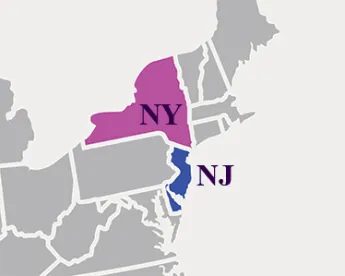Bill S422, sponsored by Senator Shirley Turner, was introduced to the New Jersey Senate earlier this month and approved for amendment by a vote on November 16. The Bill establishes new standards related to the expiration of affordability controls in New Jersey, and its most significant effect will be on the notice requirements to tenants by which landlords will have to abide.
The Bill states that when affordability controls previously put into place for a restricted rental unit expire, if the household continues to earn a gross annual income of not more than 80% of the regional median income, the landlord is prohibited from increasing the household’s rent in a way that conflicts with the affordability controls unless the household elects to vacate. If the controls expire and the household earns a gross annual income greater than 80% of the regional median income, the landlord may lease the unit for fair market rental value beginning on the next scheduled lease renewal or after 60 days, whichever occurs later. An income certification by an administrative agent will be conducted for the household prior to the expiration of the affordability controls, and as long as the 80% threshold is not exceeded, the rent restriction will remain in place. The administrative agent will be required to conduct the income certifications on an annual or biennial basis until the household is found to earn a gross annual income in excess of 80% of the regional median income, at which time the rent restriction could be lifted when the affordability controls expire.
A landlord offering a restricted rental unit must include in the lease or renewal agreement, on the first page and in highlighted text, a provision (1) indicating when the affordability controls will expire and (2) informing the tenant that they could face a rent increase if their gross annual income exceeds 80% of the regional median income at the time the affordability controls expire. If the lease or renewal agreement does not contain this provision, then the landlord may not increase rent in a manner that conflicts with the affordability controls until the next scheduled lease renewal.
Landlords of restricted rental units must provide written notice to their tenants not less than 120 days before the scheduled expiration of the affordability controls. The written notice must include: (1) the date on which the affordability controls will expire, (2) the amount of any proposed rent increase, and (3) an explanation that if the household occupying the rental unit continues to earn a gross annual income of not more than 80% of the regional median income, the rent cannot be increased in a manner that conflicts with the affordability controls. If the landlord does not provide this notice, then following the expiration of the affordability controls, the landlord cannot increase rent in a manner that conflicts with the affordability controls until the next scheduled lease renewal, or after 120 days following notification of the expiration of the affordability controls, whichever occurs later.
“Affordability controls” means the requirements set forth in the Uniform Housing Affordability Controls to ensure that a restricted rental unit remains affordable to low-income and moderate-income households. “Uniform Housing Affordability Controls” (“UHAC”) are the regulations promulgated by the New Jersey Housing and Mortgage Finance Agency, or any other regulations promulgated to implement the “Fair Housing Act.”
If the Bill reaches the Governor’s desk, it will most likely be signed into law and place these new notice requirements on landlords throughout New Jersey.
This post was written by Kristen Lyons.




 />i
/>i

